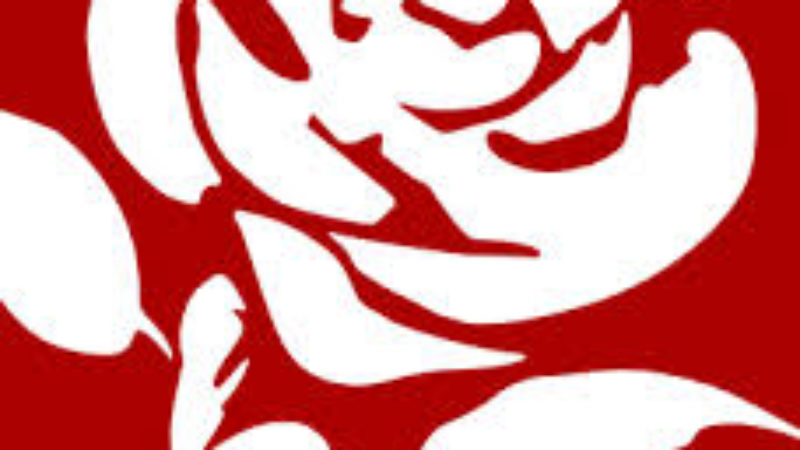
With just one year to go until election day, we’ve asked a number of LabourList contributors, thinkers, journalists and candidates what they think the next year will look like for Labour – here’s what they told us:
Luke Akehurst
 The next twelve months will see a united Labour striving for something never achieved before – a majority government after a single term in opposition. I expect to see higher levels of grassroots organisation and campaigning than in any recent election as members realise how close the fight is and are increasingly inspired by radical but practical policy announcements from Ed Miliband. There will be winces as the polls tighten, and unhelpful chit-chat about coalitions. But we will go into the General Election with a chance of winning outright, in itself is a huge achievement given where we were in 2010.
The next twelve months will see a united Labour striving for something never achieved before – a majority government after a single term in opposition. I expect to see higher levels of grassroots organisation and campaigning than in any recent election as members realise how close the fight is and are increasingly inspired by radical but practical policy announcements from Ed Miliband. There will be winces as the polls tighten, and unhelpful chit-chat about coalitions. But we will go into the General Election with a chance of winning outright, in itself is a huge achievement given where we were in 2010.
Emma Burnell
 Labour has not chosen an easy path to number 10. By challenging the outdated economic consensus that still grips most of those who set the tone in politics, we have challenged ourselves to win by reaching beyond the bubble – the opposite challenge to our strategy in 1997. What I sense in the Party, as we come into what we must hope will be the final year of Tory-led government, is a real determination to make that work. Over the next 12 months Labour and our leader will be systematically attacked by all sides, especially as we remain favourites to win. We will have to use that determination to stay organised, grounded and in touch with the electorate. And to win.
Labour has not chosen an easy path to number 10. By challenging the outdated economic consensus that still grips most of those who set the tone in politics, we have challenged ourselves to win by reaching beyond the bubble – the opposite challenge to our strategy in 1997. What I sense in the Party, as we come into what we must hope will be the final year of Tory-led government, is a real determination to make that work. Over the next 12 months Labour and our leader will be systematically attacked by all sides, especially as we remain favourites to win. We will have to use that determination to stay organised, grounded and in touch with the electorate. And to win.
Rowenna Davis, PPC for Southampton Itchen
 This year should be about the doorstep. We have rafts of policies and headlines but too often when we knock on doors people don’t know anything about them – 200,000 new homes, energy price freeze, regional banks, extended Childcare, a jobs guarantee – these are just words if people don’t hear about or believe in them. But as every good campaigner knows, the doorstep is about listening more than preaching. In Southampton and many other areas, the biggest issue raised is immigration, and we need clearer answers to people’s concerns. Our politics has to move out of Westminster and into the country. With the media not on our side and the public suspicious of parties and the press, the importance of grassroots action is essential. People need to be inspired. We can’t to it alone. Let’s do it together.
This year should be about the doorstep. We have rafts of policies and headlines but too often when we knock on doors people don’t know anything about them – 200,000 new homes, energy price freeze, regional banks, extended Childcare, a jobs guarantee – these are just words if people don’t hear about or believe in them. But as every good campaigner knows, the doorstep is about listening more than preaching. In Southampton and many other areas, the biggest issue raised is immigration, and we need clearer answers to people’s concerns. Our politics has to move out of Westminster and into the country. With the media not on our side and the public suspicious of parties and the press, the importance of grassroots action is essential. People need to be inspired. We can’t to it alone. Let’s do it together.
George Eaton, New Statesman
 It is Ed Miliband’s mantra of credibility and radicalism that should guide Labour over the next year. If the party is not credible, it will not be entrusted with the keys to Whitehall. If it is not radical, it will be dismissed as a replica of the status quo. The collapse in living standards has created the political space for Labour to propose an ambitious programme to rewire British capitalism. Alongside his existing commitments, Miliband should pledge to move towards free, universal childcare, to fully integrate health and social care, to reduce tuition fees and to take rail franchises back into public ownership as they expire. As a political leader rather than a policy wonk, he must combine all of these prescriptions into an overarching vision of a fairer and more equal society in which contribution is once again linked to reward. No opposition in recent history has returned to government at the first time of trying. But if Labour can hold its nerve in the face of a press assault and a well-financed Tory attack machine, it has a chance to set Britain on the road to becoming the modern social democracy the majority of its people wish to see.
It is Ed Miliband’s mantra of credibility and radicalism that should guide Labour over the next year. If the party is not credible, it will not be entrusted with the keys to Whitehall. If it is not radical, it will be dismissed as a replica of the status quo. The collapse in living standards has created the political space for Labour to propose an ambitious programme to rewire British capitalism. Alongside his existing commitments, Miliband should pledge to move towards free, universal childcare, to fully integrate health and social care, to reduce tuition fees and to take rail franchises back into public ownership as they expire. As a political leader rather than a policy wonk, he must combine all of these prescriptions into an overarching vision of a fairer and more equal society in which contribution is once again linked to reward. No opposition in recent history has returned to government at the first time of trying. But if Labour can hold its nerve in the face of a press assault and a well-financed Tory attack machine, it has a chance to set Britain on the road to becoming the modern social democracy the majority of its people wish to see.
Owen Jones, Guardian
 Going from Labour’s second worst post-war defeat to victory in a single term should be impossible, particularly with a leader who doesn’t have the personal ratings party loyalists would want. What gives some hope is long-term Tory electoral decline, the failure of Cameron to win against Gordon Brown in the midst of economic calamity in 2010, the lack of precedents for incumbents to increase their share of the vote, Lib Dem defectors who have inflated Labour’s core vote, favourable electoral boundaries and the Ukip factor. None of this is enough to secure victory, of course, and Labour has to offer radical, credible policies based on hope that deal with falling living standards, the housing crisis, the lack of secure jobs, an unbalanced economy, public utilities that are run by profiteers, tax justice and affordable childcare.
Going from Labour’s second worst post-war defeat to victory in a single term should be impossible, particularly with a leader who doesn’t have the personal ratings party loyalists would want. What gives some hope is long-term Tory electoral decline, the failure of Cameron to win against Gordon Brown in the midst of economic calamity in 2010, the lack of precedents for incumbents to increase their share of the vote, Lib Dem defectors who have inflated Labour’s core vote, favourable electoral boundaries and the Ukip factor. None of this is enough to secure victory, of course, and Labour has to offer radical, credible policies based on hope that deal with falling living standards, the housing crisis, the lack of secure jobs, an unbalanced economy, public utilities that are run by profiteers, tax justice and affordable childcare.
Anthony Painter
 Labour has opted for a retail political strategy. The ‘cost of living crisis’ is the umbrella term for this. It is based on what used to be called ‘pocket book issues’. Over the next year we will see a series of further policies targeted at prices, fees, fares, charges, rents, rates. This will make for some sound policy such as the recently announced rental contracts policy. The risk for Labour, however, is not that it seems too radical – and this is the mistake the Tories are making in their attacks – but that it appears too cautious. These polices may be easily outbid by petrol duty cuts, tax cuts, and widening economic recovery. At a moment when we are experiencing profound economic, social and technological change, ‘cost of living crisis’ gives people something to vote for but not enough to enthusiastically vote for. A sense of optimism will be critical if Labour is to prevail.
Labour has opted for a retail political strategy. The ‘cost of living crisis’ is the umbrella term for this. It is based on what used to be called ‘pocket book issues’. Over the next year we will see a series of further policies targeted at prices, fees, fares, charges, rents, rates. This will make for some sound policy such as the recently announced rental contracts policy. The risk for Labour, however, is not that it seems too radical – and this is the mistake the Tories are making in their attacks – but that it appears too cautious. These polices may be easily outbid by petrol duty cuts, tax cuts, and widening economic recovery. At a moment when we are experiencing profound economic, social and technological change, ‘cost of living crisis’ gives people something to vote for but not enough to enthusiastically vote for. A sense of optimism will be critical if Labour is to prevail.
Marcus Roberts, Deputy General Secretary, Fabian Society
 In one year’s time the British people will vote Ed Miliband into Number 10. But whether it is with a majority of seats and a popular vote win is still in question. Remarkably Ed himself has the ability to answer this. If he chooses a radical manifesto and a big attack on all 106 target seats he’ll win big. In practice, this means appealing not just to Labour loyalist and ex-Lib Dem voters but to blue collar non-voters and even some Tory 2010 voters too. Issues-wise this means more of the Radical Labour agenda of affordable rents and more social housing, rail franchise buy back and integrating NHS and social care. That can motivate volunteers and voters alike. Taken together this is the politics that will see off UKIP, beat Cameron and radically change Britain. Ed needs a majority to do it – and it’s within his power to win.
In one year’s time the British people will vote Ed Miliband into Number 10. But whether it is with a majority of seats and a popular vote win is still in question. Remarkably Ed himself has the ability to answer this. If he chooses a radical manifesto and a big attack on all 106 target seats he’ll win big. In practice, this means appealing not just to Labour loyalist and ex-Lib Dem voters but to blue collar non-voters and even some Tory 2010 voters too. Issues-wise this means more of the Radical Labour agenda of affordable rents and more social housing, rail franchise buy back and integrating NHS and social care. That can motivate volunteers and voters alike. Taken together this is the politics that will see off UKIP, beat Cameron and radically change Britain. Ed needs a majority to do it – and it’s within his power to win.
Stefan Stern
 It will be a long year. The strategists’ fight for a “daily win” will start now and end (we hope) on May 7th 2015. Prepare for silliness, hyperbole, lies, and over-reaction. There will be tears before polling day. You may shed some yourself. Beneath the noise, Labour will be trying to make steady progress. It will be a “cost of living” election, in the broadest sense. Most are. And Labour has a potentially winning argument. Some lobby journalists won’t see it, and even if they do they may avert their gaze. There will be exhaustive opinion polling whose findings will be reported as hard fact, without any use of the phrase “margin of error” in any prominent position. “The Tories will do anything and say anything,” Ed Miliband predicted to LabourList this week. He is right about that. Make a big offer, but be ready to adopt the brace position too. P.S. I pass on free of charge Alastair Campbell’s no 1 piece of campaign advice: “If you see a banana, eat it.”
It will be a long year. The strategists’ fight for a “daily win” will start now and end (we hope) on May 7th 2015. Prepare for silliness, hyperbole, lies, and over-reaction. There will be tears before polling day. You may shed some yourself. Beneath the noise, Labour will be trying to make steady progress. It will be a “cost of living” election, in the broadest sense. Most are. And Labour has a potentially winning argument. Some lobby journalists won’t see it, and even if they do they may avert their gaze. There will be exhaustive opinion polling whose findings will be reported as hard fact, without any use of the phrase “margin of error” in any prominent position. “The Tories will do anything and say anything,” Ed Miliband predicted to LabourList this week. He is right about that. Make a big offer, but be ready to adopt the brace position too. P.S. I pass on free of charge Alastair Campbell’s no 1 piece of campaign advice: “If you see a banana, eat it.”





More from LabourList
Government announce SEND reform in schools white paper
SPONSORED: ‘Industrial hemp and the challenge of turning Labour’s priorities into practice’
‘A day is a long time in politics, so we need ‘action this day’’